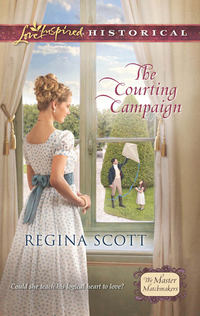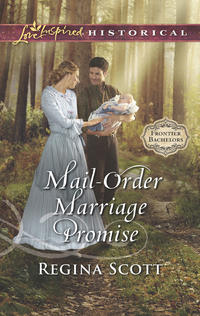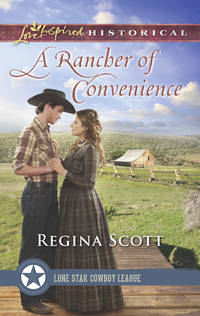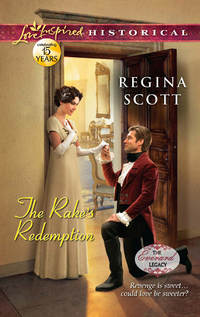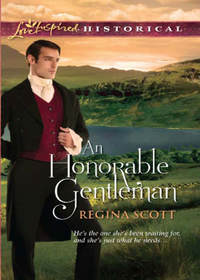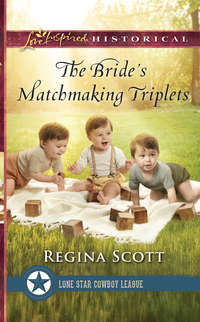
Полная версия
The Rake's Redemption
She dropped her gaze to her lap and was surprised to find the fingers of her free hand pleating the silk of her skirt. “I know no one’s perfect, Mother. But none of those gentlemen you mentioned stirred my heart. Surely I am allowed to feel something tender for the man I’ll marry.”
“I would like that for you, dearest,” her mother murmured, “but not every bride can claim a love match, despite what the novels tell you. There are many other good reasons to wed—security, position, children.”
Saving her family from penury. Oh, but she mustn’t say that aloud. She wasn’t sure she could pull it off, and telling her mother she had a plan to prevent them from losing the marquessate and all its attendant income would only get her hopes up.
“I understand, Mother,” she said. “Please know that I will do my duty. The man I accept will be a credit to the name of Devary and the House of Widmore, I promise. I will settle for nothing less.”
* * *
Vaughn’s afternoon was far quieter, a fact designed to cause him no end of difficulties. There was nothing he liked less than indolence. He needed action, challenges, something to keep his mind and hands busy. When Uncle had been alive, they’d never lacked for diversions—wagering on impossible odds, cheering horse races and pugilistic displays and closing the gaming tables in the wee hours of the morning. He wasn’t sure when those things had begun to pale—it had begun some time before his uncle’s death, he believed—but he found he had little interest in them now.
So he sat in his room in Everard House and stared at the empty parchment in front of him. The windows were shuttered, the fire banked low. He’d had the new valet he shared with his cousin Richard remove the clock so its steady ticking would be no distraction. Everything was conducive to starting his next poem, but he found the words had dried up. It was as if everything meaningful to him had turned to dust the day Uncle had died.
He leaned back in the chair at his writing table, fixed his gaze on the pattern of the wallpaper and traced each leafy green frond back to the center. Why couldn’t he order his thoughts? Other men seemed to concentrate so easily, to shift their attentions when they wished. He found himself concentrating to the point of shutting out everything else or being unable to make his mind settle on a single topic. Even now, it flitted from problem to problem, never solving anything, merely teasing him with possibilities before moving on.
For a time after Uncle had died, only vengeance had sustained him. His cousins had been concerned for his state of mind. He’d seen the looks flashing between Jerome and Richard when they talked about what had happened the night Uncle’s body had been returned home. If he dwelled on that day now, he’d likely go mad.
He pushed back his chair and went in search of game.
Everard House ought to be crowded with him, his cousins Richard and Samantha and Lady Claire Winthrop in residence, to say nothing of his cousin Jerome and his new wife, who were expected any moment. Yet sometimes days went by without more than a chance meeting in the corridor. The others were all intent on making Samantha the toast of London, and that meant taking the girl out where she could be seen.
Today, for example, Samantha and Lady Claire, as they had all begun to call his cousin’s sponsor, were just returning from some event when he reached the stairs and gazed down into the entryway. The marble-tiled space looked remarkably empty since they had removed the massive statue of a naked Eve holding out a golden apple, one of Uncle’s mad whims. Samantha seemed entirely too small, her dainty features as animated as the hands she waved in front of her sky-blue spencer.
“But he asked to call,” she was saying breathlessly. “I thought surely you’d advise me to encourage him.”
“Anyone else, certainly,” Lady Claire replied, handing her feathered bonnet to the footman. Vaughn had been unsure of Richard’s betrothed at first. The color of her thick, wavy hair might be as warm as honey, but her blue gaze could be as cold as ice. And it didn’t help that she had thrown over Richard for a wealthy viscount years ago. He had come to realize, however, that a loving heart beat beneath those fashionable silk gowns, and her devotion to Samantha was unquestionable.
His cousin puffed out a sigh as she allowed the footman to take her bonnet. “I’m only trying to fulfill Papa’s will!”
“And with considerable style,” Vaughn called down.
Her face brightened as she looked up at him. “Cousin Vaughn! You’re home!”
“An astute observation, infant,” he replied with a smile as he descended the stairs. “And as you appear to be home as well, what say we find ourselves some mischief?”
She grinned as he reached her side. “What shall it be? Boxing? Fencing?”
Lady Claire raised a brow. “Entirely without imagination. Pugilism would ruin your gown, and you’ve already beaten him twice with the blade.”
Three times, but he was not about to admit to their bout the other morning in the stables. “I allow her to win. It inspires confidence.”
“Ha!” Samantha made a face at him. “Damages your consequence, you mean.”
“Regardless,” Lady Claire said with a twinkle in her eyes, “as we need time to prepare for a ball this evening, perhaps a short game of skittles in the library.”
Vaughn nearly made a face at that. Was this what he had fallen to for entertainment—swinging a little ball on a chain so it collided with a set of pins? Where was the adventure, the excitement?
“Lovely!” Samantha exclaimed with a clap of her hands, and he felt compelled to bow her and Lady Claire ahead of him to the library. He’d promised to support the girl in any way possible, after all. She was doing them a favor.
Uncle had written his will oddly. The law required the only legal child of his blood, Samantha, to inherit the title and the bulk of the Everard legacy—lands in six counties, shares in more than a dozen ships and money in the Exchange. But Uncle had left a sizable bequest to each of his nephews provided they help Samantha achieve three tasks. The first, being presented to the queen, had been accomplished two weeks ago, thanks to the help of Lady Claire.
The other two were more difficult. Uncle’s reputation for wildness had caused any number of families to close their homes to anyone named Everard. The will required Samantha to be welcomed in those homes. Vaughn knew he wouldn’t be much help there. Between his loyalty to his uncle and the duels he’d fought the past two years, he’d managed to lock those doors and set up an oak barricade across them. Only Samantha’s bubbly personality, beauty and barony would open them.
The final task he disliked the most of all. Samantha was to garner no less than three offers of marriage from eligible gentlemen. She’d already received one from an old family friend, a boy she’d known for ages. She’d refused, and the lad had been recalled home before he could press her further.
Of course, Vaughn had also offered, more in jest than anything else, though her sponsor seemed determined to count it. Samantha had known better than to accept. Though she seemed equally fond of him, she saw the similarities between him and her father and feared them. He’d always said she was a clever minx.
The next half hour proved just how clever. She won the first game handily, and he was hard-pressed to win the second. All the while she cast him glances under her golden lashes, smile playing about her rosy lips as if she knew what he was thinking. Unfortunately, he was certain his sweet little cousin might run crying from the room if she knew the darkness that sometimes threatened him.
As if he suspected Vaughn’s mood, Richard, who had wandered in during the second game, stayed behind when Lady Claire took Samantha away to change for the ball.
“I understand you’re pursuing Lady Imogene,” he said, taking Samantha’s spot across the table from Vaughn.
Vaughn continued to set the polished wood pins back in their positions on the board. “If you know only the single song, pray stop harping.”
He thought his cousin might react to the goad. In fact, a small part of him wanted a reaction, perhaps even an argument. Anything was better than staring at that blank page upstairs where his muse lay stillborn. But Richard crossed his arms over his chest, straining the shoulders of his brown coat.
“You can’t dwell on the past,” he said. “It will eat away at you.”
Vaughn knew Richard spoke from experience. He’d courted Lady Claire when they were both too young and he’d watched her wed another. Only when the now-widowed Claire had chosen to sponsor Samantha had the two worked through their differences.
“Easy for you to say,” Vaughn returned, aligning a pin into the triangle. “Your past is now your future. For me, there will be no second chance. Uncle is dead.”
“We’ll see him again someday,” Richard countered.
Something black boiled up inside him. “Men of faith go to heaven. By your theology, Uncle and I are headed somewhere else entirely.”
Richard’s long arm shot out, clasped his shoulder. “Only if you choose it. Uncle had a change of heart before he died. I see no reason not to hope for you.”
Vaughn glanced up at him, feeling the concern coiling out from Richard’s grip, seeing the worry in that tense face. With one finger, he hit the closest pin and watched as all the others tumbled, as well. “Only if your God has a sense of humor,” he said, though he felt his gut twist at the joke. He very much feared that nothing he could do would earn him a place beside his cousins when this life ended.
Richard looked ready to argue, his bearded jaw set. Vaughn rose and turned his back, striding from the room before his cousin could call him back or call him to task. He needed light, he needed air. He needed something to focus his mind!
A picture kindly presented itself, sharp and clear, and he knew exactly how to fill that waiting page. He took the stairs two at a time, shoved through the door and threw himself into the chair. The words flew from the quill, powerful, purposeful. Only when he’d filled that page and three more like it did he stop to marvel at the flow.
That the poems came so easily should not have surprised him. All he’d needed was a little inspiration. And it seemed his mind had finally deigned to fix itself on a point on the horizon: a shining star named Imogene.
Chapter Five
Imogene was ready when Vaughn Everard called for her the next day. She was once again loitering near the landing, but she took her time descending the stair to his side. It would never do to let a gentleman think she was longing for his company or that she admired him in his high-crowned beaver, bottle-green coat and spotless boots. She tried not to blush as he took her hand and declared that the angels in heaven must be weeping for their inability to match her beauty.
But she couldn’t help exclaiming over his carriage.
It was a newer class, a “chariot” she believed she’d heard, in a shade of lacquered blue that complimented her lighter blue spencer and the velvet ribbons that crossed her white bonnet. Every sleek line said speed and power. The perfectly matched snowy-white horses waiting at its head looked capable of flying, and even her under footman holding them seemed awed by his task. She glanced at the seats in the compartment behind the high driver’s bench.
“I prefer to handle my own horses,” Vaughn said as if he’d seen her look. “I was hoping you’d join me up front.”
Imogene grinned at him. “I was hoping you’d ask.”
That smile appeared, so fleeting and yet so warming. She wondered what she’d have to do to make it remain.
He handed her up into the seat, a padded-leather perch surrounded by a brass rail, then went around to take his place beside her. Up so high, she could see down the street, across the park in the center of the square and through the trees to the more trafficked street beyond. As she glanced around, however, she noticed that the space for the footman or tiger at the back was empty, and her under footman showed no sign of climbing aboard as he released the bridles at Mr. Everard’s nod.
Of course, sitting up on the driver’s bench, everyone could see her as well, so her reputation would not suffer—at least no more than would be expected sitting next to this man.
He clucked to the horses and set them off at a good clip, the rushing air tugging at her bonnet. His hands held the great beasts lightly, and he easily threaded the horses through the traffic on Park Lane. A little thrill ran through her. She was driving with the famous Vaughn Everard! Would he speak of love, of great historical events, of the French massing on the farther shore of the Channel, ready to devour England?
“Fine day for a drive,” he ventured, gazing out over his horses.
She stared at him. Oh, she must have misunderstood. He was merely warming up, like a musician tuning his instrument before a concert. “Exceptionally fine,” she agreed, waiting for the opening bars of his solo.
“And your mother is well?”
No, no, no! That wasn’t how the ride was supposed to go. He couldn’t be as endlessly polite as her other suitors. She’d go mad. “Exceedingly,” she clipped.
“How are you enjoying your Season?”
Imogene turned to him. “Well, it was all going tremendously well until you turned into a dead bore.”
He blinked at her, then grinned, and her heart danced. “Forgive me. I should have known better than to try to impersonate a gentleman. I promise to improve once we reach the park. Which would you prefer, the carriage path along Park Lane or the one down to the Serpentine?”
The Park Lane route was the more popular, she knew. She’d been driven there by more than one suitor. The path down to the Serpentine, however, was less frequented. Gentlemen were rumored to hold trysts among the trees. She’d never driven that route.
“The Serpentine path,” she said, settling back in her seat. “And I’ll be much more in charity with you if you give me a chance at the reins.”
With a laugh, he turned the horses, and they entered Hyde Park.
The carriage path wound across the northernmost lawn and into the trees surrounding the wooden walls of the upper powder magazine. Imogene had always found it odd that the army would think Hyde Park a good place to mix and store gunpowder, but she supposed having the magazine out among the trees protected the populace and the crowded buildings of London from accidents.
Today the way toward it lay empty, but she could see crowds beginning to gather as the fashionable made their afternoon descent on the park. Couples strolled along the footpath to Kensington, carriages paused along Park Lane and gentlemen on horseback headed for Rotten Row to the south. Closer to hand, however, it was only her and Mr. Everard. As if he realized it, he slowed the horses. “Perhaps it’s time we spoke of more important matters.”
The light of the lovely spring day seemed to dim. This was not a pleasure drive, after all. He wanted information from her, and she must make her report. “You asked after my father,” she said. “Particularly what he was doing on March third.”
“Have you remembered something more about that day, then?”
She could hear the hope in his voice and chanced a glance at his face. His gaze was fixed on his horses, but she didn’t think he even noticed the actions of the snowy pair.
“A little,” she admitted. “I talked with Mother about the day. She reminded me that on March third we’d only just arrived in London. I know we spent the evening settling in and seeing everything unpacked.”
“Then your father was at home.”
She thought he sounded relieved. “For the evening, yes. I understood we were to make an early night of it, but as I was preparing to retire, I heard a noise from the gardens and looked out the window. Father was leaving on his horse. I assumed it was a summons from the War Office, and he simply didn’t want to overtire our coachman, who had just driven us to London.”
“Possibly,” he said, but his look had darkened.
The air felt cooler. She rubbed the arm of her spencer. “You think he went somewhere else, don’t you?”
He clucked to the horses as they took the turn through the tall trees past the magazine, the sunlight through the leaves striping his face with light and shadow. “My uncle fought a duel the night of the third. He lost, and we lost him forever.”
So that was how Lord Everard had died. “And you think Father was a witness.”
“I think he was there, yes. I’d like to hear his account of the event.”
Imogene put her hand on his arm and felt the tension in it, beyond what it should have taken to guide the team. She had friends who had lost loved ones—a mother to childbirth, a brother in the war. She knew each had a way of grieving all their own. Some cried, some were blue for weeks and others attacked life as if hoping to wrest every ounce of joy from the moment, never sure whether it was their last. She rather thought Mr. Everard fit the last category.
“It’s hard when someone you love dies,” she murmured. “When my brother Viscount Charles passed on I felt so confused. He was just a boy—he hadn’t even started to live! I didn’t understand how God could take him, particularly after He’d taken all the others, too.”
“Others?” He glanced her way, seeking clarification.
Imogene withdrew her hand and dropped her gaze as she smoothed down her muslin skirts. “I would have had three older sisters had they lived beyond their birth.”
“I’m so sorry.”
Other people had said those words, to her father, to her mother, to her. Never had she heard such emotion behind them, as if he understood the pain of loss better than most, as if he understood how that loss had hurt her.
“So am I,” Imogene assured him, raising her gaze. “And I regret that your uncle left you, too.”
He managed a parody of a smile. “These thoughts are entirely too melancholy for such a lovely day. May I only say that I have no doubt where you will spend eternity, Lady Imogene. Surely so pure a spirit must rejoice with the angels.”
It was a pretty compliment, one she might expect from a poet, but the sentiment did not ring true. As if he meant to distract her, he held out the reins. “Now, perhaps you’d care to demonstrate how well a pure spirit can drive.”
She knew she must be a sad trial to her mother because the gambit worked. Imogene stared at him, hopes rocketing skyward. “Truly?”
His eyes widened. “Tell me this won’t be the first time.”
She laughed at the trace of panic in his voice. “Not at all, sir! I’ve driven our gig to church at our country estate, and Father even bought me my own pony cart.”
The reins inched closer to his chest. “A chariot is a much larger vehicle.”
“Obviously,” she replied with a grin. “But with you here to advise me what could go wrong?”
One corner of his mouth lifted at that, and he offered her the strips of leather.
Imogene slipped her gloved hands over his, relishing the strength, the confidence with which he held the team. As he released the leather into her care, she felt the tug of the horses, the weight of responsibility for their guidance. A tremor started in her arm, and she forced herself to stiffen. She could do this. She was the Marquess of Widmore’s daughter.
Vaughn must have remained a little nervous for his horses, for he edged closer to her on the seat until his leg pressed against her skirts and she could feel the warmth of his body. Suddenly it was much more difficult to concentrate.
She took a deep breath. The scent of something clean and crisp drifted over her. Funny, she would have thought he’d wear some exotic cologne, but he smelled more of spring and sunlight. She wanted to close her eyes and breathe him in.
This would never do! She mustn’t be caught woolgathering while driving! She had a duty—to the horses, to him, to the other people in the park.
The horses trotted on, completely comfortable with their surroundings and seemingly oblivious to the change in leadership. She was tempted to whip them up, send them pounding down the path, but that was never wise in Hyde Park. They might meet another carriage around the next turn or come across a pedestrian. She had to be careful.
“What a splendid pair,” she told him instead. “And how well matched. Their gaits are as one.”
She didn’t dare glance Vaughn’s way, determined to drive well, but she could hear the smile in his voice. “Our Master of Horse will be pleased to hear that you approve. They were each rejected at Tattersall’s for being too unruly to pull a carriage or serve as a gentleman’s mount. I thought differently, and he proved my point.”
“They’re darlings,” Imogene assured him. “Anyone who thought otherwise clearly lacked vision. What are their names?” She nearly closed her eyes again, this time in mortification. Did gentlemen name their carriage horses? She’d never been introduced to a team.
But he didn’t seem to find fault with her question. “Aeos on the left and Aethon on the right.”
“From the legend of Apollo’s chariot pulling the sun,” Imogene realized. And how like a poet to choose such names.
“You know your Greek mythology.”
Imogene smiled. “Father insisted on it. He said there was no reason I couldn’t be as well educated as any gentleman.”
“And better than most,” he agreed. “The Ring is coming up on your left. We’ll need to swing around it. Give Aethon his head.”
She could see the group of trees coming up and the fence that circled the remains of the old riding circle. She eased up the pressure on the left set of reins, but Aethon kept pace with his teammate. She frowned.
“May I?” Vaughn asked.
She thought he meant to take back the reins, and her spirits sank. But he leaned closer and cupped her wrists, gloved fingers glazing the bare skin between her sleeves and her gloves. A tremor shook her again, but it had nothing to do with concerns about her driving skills.
“Like this,” he said, voice purring beside her bonnet. She felt the strength as he drew back her hands. Together they guided the pair, through pressure and tension, around the trees and out onto the shaded path. The air felt cool as he pulled away, and Imogene drew in a breath, surprised to find she had been holding hers.
“Nicely done, Lady Imogene,” he said. “The next thing you know, you’ll be driving the mail.”
She highly doubted that, though a part of her preened. She’d heard that some gentlemen dressed like coachmen and even bribed the mail coach drivers to let them take a hand at the great coaches. “Have you driven a mail coach?” she asked.
His gaze was once more out over the horses. “When I wish to drive hard, I don’t need to borrow a coach. And I don’t need the approval of others to assure myself of my skills.”
That must be nice. She’d put in a great deal of effort over the years to win her father’s approval. Now it seemed as if he’d forgotten her entirely. “But you must belong to a club,” she said. “What about White’s? Surely you’re a member there.”
He stretched one leg with a grin. “They dislike fellows who rarely lose.”
“One of the other gentlemen’s clubs, then.”
“Same faces, same rules. As you said, a dead bore.”
Imogene glanced his way. His polished boot was high on the footrest, his gaze out across the trees and pathways, a smile playing about his lips.
“Do you belong nowhere, sir?” she teased.
The smile disappeared. “To nothing and no one, Lady Imogene. Count on it.”
He was trying entirely too hard. Had she goaded him into it by calling his earlier conversation boring? Surely he cared about something; his poems were evidence of that. He saw things—in nature, in people—that others missed. He must belong to someone.
Perhaps he could belong to her?
The thought came unbidden, but she couldn’t dismiss it. She imagined a great many ladies had thrown their lures at him, yet apparently he was immune. It seemed he had a devotion to his cousin, Lady Everard, if the rumors were true, but he was here with Imogene now. Was she the woman to make Vaughn Everard settle down at last? He was clearly arrogant enough to think it impossible. She was just arrogant enough to try!


